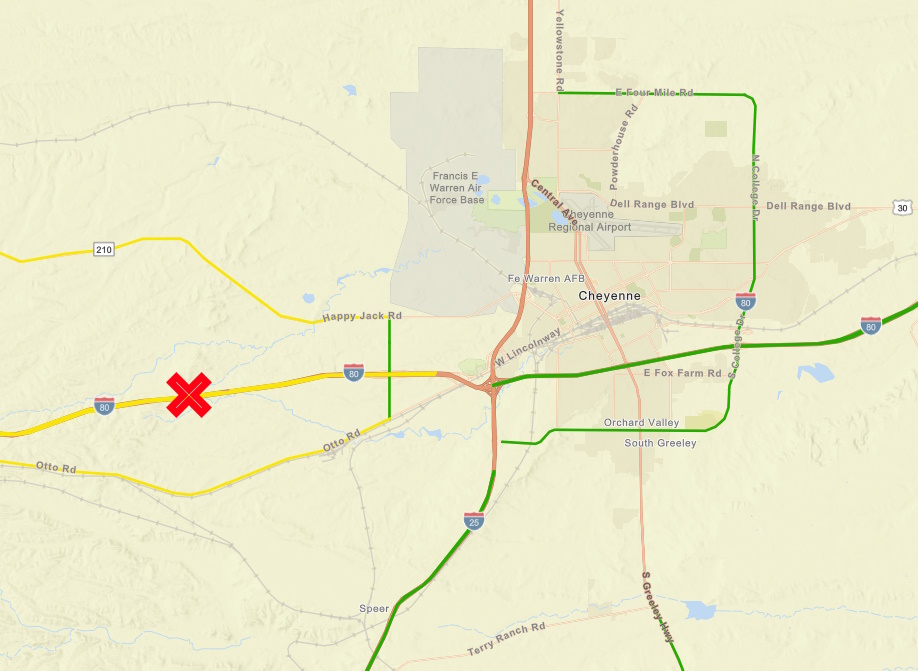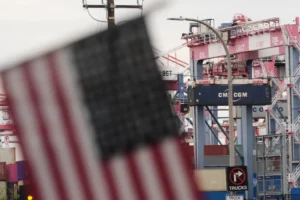State Allowed to Keep $75K That Authorities Found Suspicious
Wyoming Supreme Court overturns judge’s ruling in favor of driver
- Published In: Politics
- Last Updated: Dec 04, 2023

The Wyoming Supreme Court reversed a lower court’s decision on Thursday and ruled the state can keep $75,000 that suspicious law enforcement officers seized from a California resident in 2020. (Courtesy photo from the Wyoming Supreme Court)
By CJ Baker
Special to the Wyoming Truth
Despite being cleared of criminal wrongdoing, a California man still must forfeit $75,000 of suspected drug trafficking proceeds to the state government.
Lorenzo R. Gallaga has been battling the state since July 2020, when authorities arrested him on drug charges and seized his cash. A jury acquitted Gallaga of a misdemeanor count of possessing marijuana in 2021, but the Wyoming Attorney General’s Office continued to pursue his money in a separate civil forfeiture proceeding.
Gallaga initially prevailed in that case, too: Last winter, a district court judge ordered the AG’s office to return Gallaga’s cash and pay him $61,000 to cover his attorney fees, costs and interest. On Thursday, however, the Wyoming Supreme Court unanimously ruled the judge had misapplied the law and awarded the $75,000 to the state.
Justice Keith Kautz wrote that the evidence presented by the state “plainly showed” Gallaga had been working with others to cultivate, promote, use, sell and distribute marijuana in ways that “would be illegal … if committed in Wyoming.”
“Mr. Gallaga provided various explanations of the origins of the $75,000, but his financial records did not show a legitimate source of the currency,” Kautz wrote. “A large quantity of currency may be subject to forfeiture if the evidence shows the owner lacked legitimate income to account for it.”
The ruling suggests that, regardless of whether Gallaga was obeying the marijuana laws in his home states of California and Illinois, his cash was subject to forfeiture in Wyoming because the substance remains illegal here. But the AG’s argument was that Gallaga’s growing and selling may have run afoul of the other states’ regulations, while violating federal law.

During oral arguments in August, Senior Assistant Attorney General Kellsie Singleton said the state wouldn’t have been able to claim Gallaga’s cash if “he was just passing through the state [of Wyoming and] happened to have some proceeds that were from this legal cultivation.”
Gallaga contended he’d earned the cash legally through work and various enterprises, but Kautz was openly skeptical at August’s hearing. After reading the district court’s findings, the justice said Gallaga “has either a very poor memory or he’s dishonest,” noting “so many contradictions.”
The stop
Gallaga was pulled over just west of Cheyenne on July 29, 2020, after a Wyoming Highway Patrol trooper reportedly clocked him going 84 mph in a 75 mph zone on Interstate 80.
Trooper Joseph Dellos smelled marijuana when he approached Gallaga’s vehicle and decided to search it. He and other officers found apparent marijuana joints, THC products, assorted pills and a couple grams of ecstasy in his rented Cadillac Escalade.
The Laramie County District Attorney’s Office initially filed a felony count of possessing marijuana and three misdemeanor counts of possessing other drugs, but eventually winnowed them to a single misdemeanor count of possession of marijuana. Jurors acquitted Gallaga in September 2021.
The legal proceedings then shifted to another item found in the Escalade: a suitcase containing $75,000 in cash and documents that included a list of various strains of marijuana and apparent transactions.

Gallaga contended he’d earned the cash from years of savings, work, rental properties in California, flipping real estate and selling Air Jordans and other high-end fashion items. Gallaga had high-end clothing and Jordans in the Escalade that he valued at roughly $30,000.
But after combing through a slew of records related to Gallaga’s taxes, income, businesses, properties and travel, Wyoming Division of Criminal Investigation Agent Troy Bartel concluded his story didn’t add up. For example, although the cash was packed inside Bank of America envelopes and Gallaga claimed it came “out of my bank,” Bartel didn’t find any large withdrawals that explained the source of the $75,000.
Bartel also contended Gallaga’s pattern of flying to California and apparently driving back to Illinois in rental cars was consistent with traffickers, who shuttle drugs east and money west. Authorities noted that, although Gallaga said he planned to use the $75,000 to buy property in Illinois, he was heading to California when he was stopped.
Gallaga said he thought the cash was safer with him than in a bank and he intended to bring it back to Illinois. He contended he’d only participated in medical marijuana cooperatives that legally grow and donate small amounts of marijuana to help those in need.
Gallaga’s attorney, Donald Miller of Cheyenne, said the AG offered “no evidence” to counter his client’s explanations and that he’d obeyed the laws in California and Illinois.
“The state’s case was built on conclusory allegations based on conjecture,” Miller wrote.
However, the AG presented numerous pieces of evidence the courts found persuasive, including a 2019 voicemail in which someone requested “weed” to “take care of some house payments.” Additionally, the ledger in the suitcase listed $130,000 worth of transactions, including an apparent 18-pound delivery to a specific individual in 2019. The Supreme Court ruled the ledger “explained the source of the funds” found in Gallaga’s SUV.

A victory and a reversal
Laramie County District Court Judge Catherine Rogers had generally rejected Gallaga’s version of events and adopted the state’s following an April 2022 bench trial. She said the state proved Gallaga possessed marijuana and ecstacy and “was actively engaged in the cultivation, promotion, use, sale, and distribution of controlled substances in … California and Illinois.”
But Rogers ultimately determined the AG had failed to prove Gallaga’s cash was part of an interstate drug distribution conspiracy.
“The state’s claims regarding unidentified parties and unspecified conduct are unsupported and conclusory allegations which do not amount to clear and convincing evidence that the [$75,000] was furnished in exchange for a controlled substance in violation of the Wyoming Controlled Substances Act …,” Rogers wrote in late December 2022, ordering the money to be returned to Gallaga.
In March, she tacked on nearly $45,900 to cover Miller’s fees and costs, $13,125 in interest for the years Gallaga was deprived of his cash and about $2,400 for his travel expenses.
But that $136,000 was zeroed out Thursday. The Supreme Court ruled the AG didn’t have to identify specific transactions and co-conspirators or prove Gallaga’s actions had a direct impact in Wyoming.
“When the correct law is applied to the district court’s undisputed factual findings, it is clear the state satisfied its burden for forfeiture of the currency,” Kautz wrote.
In civil forfeiture cases, the state must prove its case by “clear and convincing evidence,” which is a lower burden than “beyond a reasonable doubt.” While the practice has been criticized by civil liberties advocates and the Wyoming Republican Party, the Supreme Court has ruled property can be forfeited even if the owner is acquitted of criminal charges.













